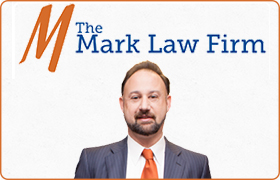 Jersey City Criminal Lawyers, New Jersey
Jersey City Criminal Lawyers, New Jersey
Sponsored Law Firm
-
 x
x

Click For More Info:
-
Mark Law Firm
675 Morris Avenue, Suite 102 Springfield, New Jersey 07081 » view mapCar Accident Call Now For A Free Initial Consultation
Life changes drastically in the aftermath of a serious accident or injury. Emotional and financial ramifications can also be extensive.
800-736-9780  Jamison Mark Basking Ridge, NJ
Jamison Mark Basking Ridge, NJAttorney At Law - NJ, 2000
Widener University SOL, J.D. - 1999
 Overview
OverviewMark Law Firm is a full-service firm representing the interests of its clients.
 Testimonials
Testimonials"He is certainly one to go to the limit for his clients and his friends."
Sponsored Lawyers
1-10 of 14 matches
Criminal, Immigration, Divorce & Family Law, Juvenile Law, Accident & Injury
For 25 years, Attorney Adrienne D. Edward has been offering top-notch legal representation to individuals and families throughout New York and New Jersey. Ms. Edward is an experienced Criminal Defense Attorney in New York and New Jersey. She is admitted to practice in the United States District Court of New Jersey, Southern and Eastern Districts of New York State. No matter what your specific circumstances and needs may be, Ms. Edward is committed to developing the best legal strategy to secure the best possible outcome for your case. The Law Office of Adrienne D. Edward P.C. offers comprehensive legal services in the areas of Criminal Defense (State and Federal), Family, Matrimonial, Immigration, and Personal Injury. Our firm has been recognized as one of the “Top 100 Trial Lawyers” by the National Trial Lawyers Association. For reliable and effective representation, reach out to the Law Office of Adrienne D. Edward P.C. today to make an appointment.
(more)





